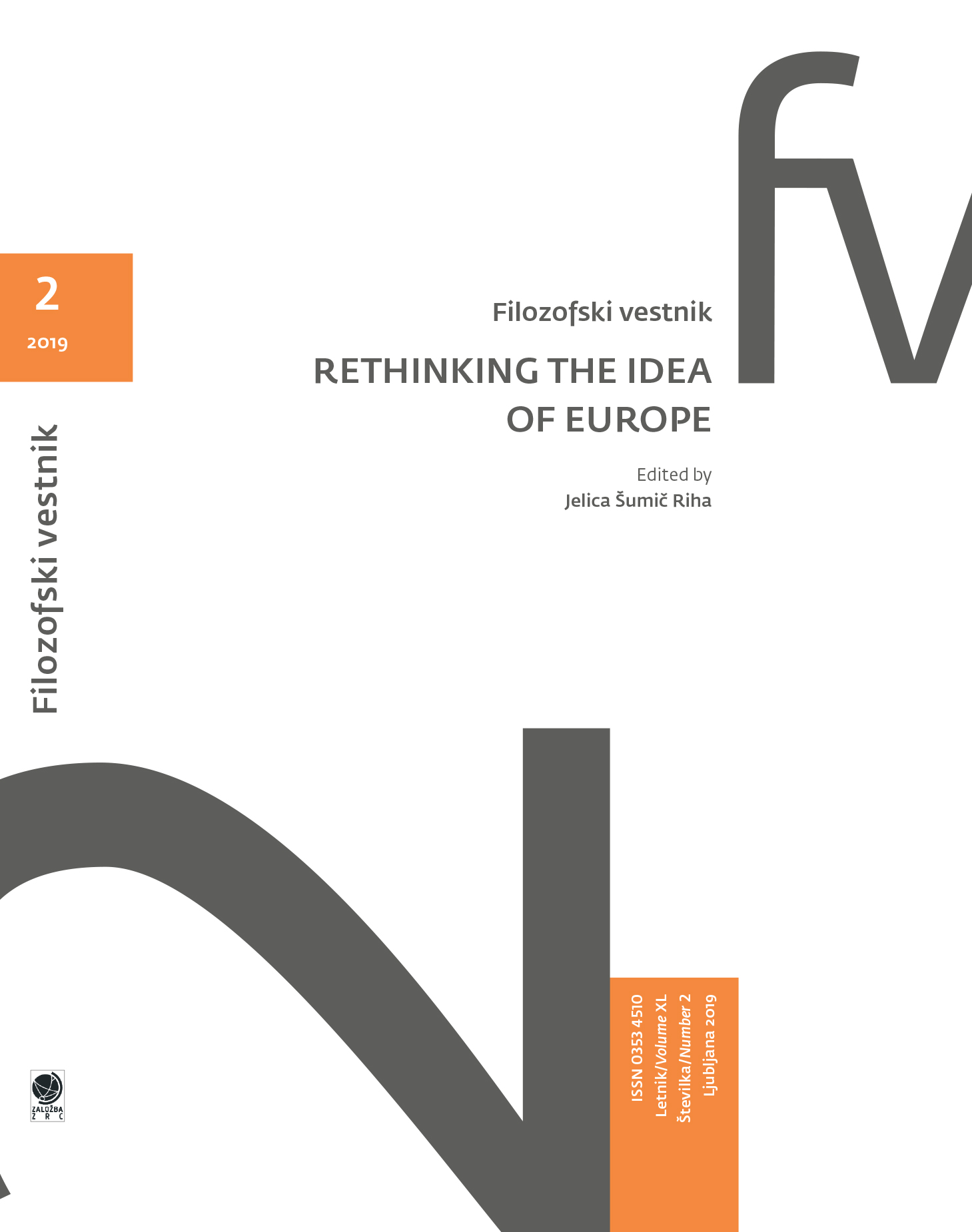Nietzschejev prehod od Nemčije k Evropi: tri ‘smrti’ višje kulturne enotnosti
Ključne besede:
Nietzsche, nemška enotnost, Evropa, kritika idealizma, naslavljanje filozofijePovzetek
Nietzschejeva zgodnja filozofija je bila posebej naslovljena na Nemce. To ne pomeni, da teme, o katerih je Nietzsche razpravljal v tistem času, niso bile univerzalne. Kljub temu, pa je gotovo, da je Nietzsche sleherno izmed teh univerzalnih tem motril v povezavi s tistim, kar je v tistem času dojemal kot centralno nalogo vseh svojih intelektualnih prizadevanj – in sicer, z njegovo vizijo in propagiranjem Ideala »nemške enotnosti v najvišjem pomenu«. Nietzschejeve zgodnje teme kot so – ‘Grki’, kritika historicizma, Schopenhauer in Wagner –, so bile torej sočasno naslovljene na dva naslovnika: prvič, kot univerzalne filozofske teme, so bile naslovljene na vse, in drugič, kot ključne komponente Ideala Nemške višje enotnosti, so bile te teme naslovljene prav posebej na Nemce. Vendar pa je v času, ko je Nietzsche začel s pisanjem dela Človeško, prečloveško, ta struktura že v celoti razpadla: Nietzsche je opustil Ideal Nemške višje enotnosti, poleg tega, pa je njegova celotna filozofija zavzela smer radikalne kritike Idealizma. Posledično, si je Nietzsche našel tudi novo ‘publiko’, na katero je začel naslavljati svojo filozofijo. To novo publiko na katero je Nietzsche prenaslovil svojo filozofijo, so predstavljali »Evropejci«. Glavni problem Nietzschejevega naslavljanja na »Evropejce« pa je bil v tem, da bi se ti »Evropejci«, na katere je Nietzsche prenaslovil svojo filozofijo, morali šele pojaviti, da bi lahko prevzeli Nietzschejevo sporočilo. Oziroma natančneje, Nietzschejeva naslovitev »Evropejcev« bi morala poslati sporočilo, ki bi, samo po sebi, pospešilo njihov prihod.
Prenosi
Prenosi
Objavljeno
Kako citirati
Številka
Rubrike
Licenca
Avtorji jamčijo, da je delo njihova avtorska stvaritev, da v njem niso kršene avtorske pravice tretjih oseb ali kake druge pravice. V primeru zahtevkov tretjih oseb se avtorji zavezujejo, da bodo varovali interese založnika ter da bodo povrnili morebitno škodo.
Podrobneje v rubriki: Prispevki





